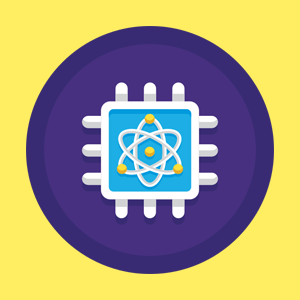 Quantum computing represents one of the most exciting frontiers in technology, promising to redefine what is computationally possible. Before diving into the groundbreaking advancements of 2023, it’s essential to understand the fundamentals of quantum computing and how it differs dramatically from classical computing.
Quantum computing represents one of the most exciting frontiers in technology, promising to redefine what is computationally possible. Before diving into the groundbreaking advancements of 2023, it’s essential to understand the fundamentals of quantum computing and how it differs dramatically from classical computing.
Understanding Quantum Computing
Quantum computing is a revolutionary computing paradigm that leverages the principles of quantum mechanics to process information in ways that classical computers cannot. At the heart of quantum computing are quantum bits, or qubits, which represent the basic unit of quantum information. Unlike classical bits, which can be either 0 or 1, qubits can exist in a state of 0, 1, or both simultaneously, thanks to the phenomenon known as superposition. Additionally, qubits can be entangled, a unique property where the state of one qubit can depend on the state of another, no matter the distance between them. This entanglement and superposition allow quantum computers to perform complex calculations more efficiently than their classical counterparts, particularly for specific types of problems.
Superconducting Qubits: Engineering the Quantum Future
Superconducting qubits use superconducting circuits to create and manipulate quantum states, benefiting from relatively easy integration with existing technology and scalability. In 2023, the field saw remarkable progress in improving the coherence times and error rates of superconducting qubits. Companies and research institutions unveiled processors with more qubits and sophisticated error-correction methods, moving closer to practical quantum computing applications in cryptography, material science, and beyond.
Trapped Ions: Precision Quantum Manipulation
Trapped ion quantum computing operates by confining charged atoms (ions) and using lasers to perform quantum operations. Known for their high fidelity and long coherence times, trapped ions systems in 2023 achieved significant advancements in scalability. New techniques for linking qubits and enhancing operational precision pushed the boundaries of what’s possible, promising new heights in quantum simulation and modeling.
Topological Qubits: Harnessing Quantum Stability
Topological qubits explore using the topological states of matter to naturally protect quantum information, potentially solving the decoherence and error accumulation problem. While still in the experimental phase, the year 2023 witnessed essential developments towards realizing topological quantum computing, offering a glimpse into a future with inherently error-resistant quantum computers.
Photonic Quantum Computers: Quantum Computing at the Speed of Light
Photonic quantum computing uses light particles, or photons, to carry quantum information. This approach benefits from compatibility with existing fiber-optic technology and the potential for room-temperature operation. Advances in 2023 focused on overcoming the challenges of photon control and integration, marking significant steps towards scalable photonic quantum processors and the dream of a quantum internet.
The Path Forward: Implications for Scalability and Applications
The strides made in 2023 across different quantum computing technologies have profound implications for scalability and practical applications. These advancements are paving the way for quantum supremacy in certain domains, where quantum computers can outperform the best classical systems. From drug discovery and climate modeling to secure communications and financial systems, the potential applications are vast and varied.
Moreover, the progress highlights the trend towards hybrid systems, combining quantum and classical computing elements. This pragmatic approach seeks to leverage quantum computing’s strengths in specific areas while relying on classical systems for broader computational tasks, offering a path toward real-world quantum computing applications.
Conclusion: A Quantum Leap into the Future
The year 2023 marked a significant milestone in the journey of quantum computing, with each technological advance bringing us closer to unlocking its full potential. The developments in superconducting qubits, trapped ions, topological qubits, and photonic quantum computing not only showcase the field’s vibrant innovation but also reinforce the diverse approaches being pursued. As we look to the future, the continued evolution of quantum computing promises to transform our approach to problem-solving and open new vistas in technology, science, and beyond.
